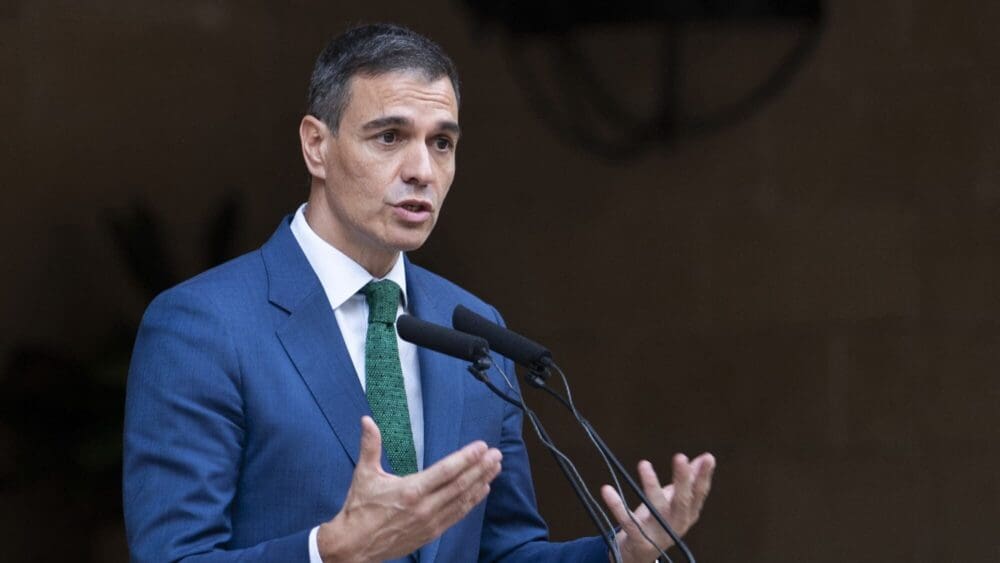
Spanish PM Pedro Sánchez
JAIME REINA / AFP
Spanish prime minister Pedro Sánchez refused to answer more than two questions on Tuesday from the judge heading a judicial investigation into alleged corruption and influence peddling by his wife, Begoña Gómez. He then filed a lawsuit against the judge for alleged malfeasance.
Sánchez was called as a witness in the investigation but used his right under Spanish law to not testify against his spouse.
Gómez’s lawyer, former interior minister Antonio Camacho, who was present for the judge’s interview with Sánchez, told reporters Sánchez’s testimony lasted two minutes and that Judge Juan Carlos Peinado asked him two questions—whether he was related to any of the people under investigation and whether he wanted to testify. Sánchez replied that he was Gómez’s husband and that he did not want to testify.
Also present for Sánchez’s interview with Peinado were representatives of the prosecutor and a lawyer for VOX, which has joined in the complaint against Gómez under the legal figure of “the people’s accusation.”
Gómez, too, has declined to testify, leaning into Spanish law. Several other witnesses have been called in the case, including a close business associate of Gómez and an administrator from the Complutense University where Gómez is officially employed.
Sánchez has repeatedly denied the accusations against Gómez, calling them a mudslinging campaign designed by the “far-right.” Gómez has not made any public statements on the matter.
Under Spanish law, witnesses who also hold certain public offices have the privilege of not having to appear in court but rather can request the judge come to their office to gather testimony. Sánchez had requested to be able to testify in writing but the two judges refused the request and instead, the judge of the investigative court, Juan Carlos Peinado, went to the presidential palace, La Moncloa, to collect Sánchez’s testimony.
Nevertheless, just minutes after Sánchez declined to testify, the state attorney’s office filed a lawsuit against Peinado for alleged malfeasance. Specifically, the lawsuit was filed on behalf of Sánchez as prime minister, a caveat that allows him to use the state’s highest attorney, and for the judge’s refusal to allow the premier to testify in writing.
This is the first time in Spain’s history that a prime minister has filed a lawsuit against a judge.
“This lawsuit is intended to respect the independence of the judiciary, but also to defend it from the practices of those who operate for political motives and outside the law,” government spokesperson Pilar Alegria said.
But analysts have pointed out that the suit turned the office of the state attorney from an organ designed to protect and advise the government in the interests of citizens into one at the behest of the personal interests of the current president. In other words, ‘Sánchez is the state.’
Besides this new lawsuit, Peinado has faced threats against himself and his family since opening the investigation into Gómez.
